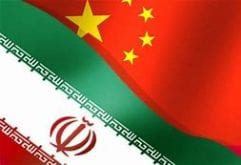iranintl – While Houthi attacks on shipping have halved grain transit through the Suez Canal, grain ships bound for Iran navigate the Red Sea untroubled, commodities experts say.
Apart from those headed to Iran, grain ships originating from the Black Sea are about the only ones still using the route.
Iran-backed Houthis have effectively closed the Red Sea with their missile and drone strikes on commercial vessels. They maintain that they act in support of Palestinians and target only ships that are somehow related to Israel or its main supporters, US and Britain. But very few transport companies are willing to risk it.
“Just about all (dry bulk grain) vessels going from the Americas and western Europe are avoiding the Red Sea,” according to Reuters. “The only exception is vessels going to Iran, they’re still taking the Red Sea route when shorter.”
The clerical regime in Iran has been the Houthis’ primary supporter for several years now, funding, arming and training their forces and helping the group gain and retain control of large parts of Yemen in the face of a much stronger military alliance led by Saudi Arabia.
Last November, the Houthis began targeting ships in the Red Sea, in what they have always stated to be a response to Israel’s onslaught on Gaza, and claiming that it would end if there were to be a ceasefire in Gaza. However, the attacks began in mid-November after Iran’s ruler Ali Khamenei called on Muslims to blockade Israel.
Houthis have disrupted global maritime trade, forcing major operators to re-route and go around the southern tip of Africa, which has increased shipping costs and consequently the price of many consumer goods.
Iranian officials hail the Houthis’ “bravery” but insist that the group is operationally independent. However, a report in Asharq al-Awsat Friday suggested that Iran’s Revolutionary Guard (IRGC) has a dedicated unit directing attacks in the Red Sea.
Quoting an unnamed Yemeni military source. Asharq al-Awsat reported that IRGC and Hezbollah forces “oversee every aspect of the military and political activities of the Houthis,” which includes “assembling missiles and drones, preparing unmanned boats and submarines, and even controlling the release of military information and videos.”
The report confirms a US military assessment two weeks ago that the IRGC has forces “on the ground” in Yemen “serving side by side” by the Houthis.
Shortly after the Houthis started their operations, the United States and some of its allies dispatched warships to the Red Sea to protect commercial vessels. More recently, the US and Britain have been striking Houthi sites inside Yemen, calling it “defensive action” aimed at “degrading” the group’s capabilities.
The strikes seemed to be a success when Houthi attacks ceased for two weeks in February. Later in the month, however, attacks resumed –and with marked increase in intensity.
“It is pretty obvious that the Houthi attacks cannot be stopped easily by military means,” Reuters quoted one grain trader exporting cargoes from Europe. “Many ship owners are still willing to accept the danger to their ships and vessels… Chinese purchases of Ukrainian corn recently are expected to transit the Red Sea.”
President Biden admitted that he didn’t think the airstrikes he authorized could end the Houthi attack, who, undeterred, have threatened to “surprise” the “enemy.”
Biden critics say his administration is to blame for emboldening the Houthis’ and –perhaps more importantly– Iran.
“Iran’s proxies are being emboldened and enriched by the Biden Administration’s appeasement first foreign policy,” Senator Pete Rickets (R-Ne) said in a Senate Committee for Foreign Relations hearing Thursday . “It’s a threat to American national security. More money in Iran’s coffers means more money in the hands of their proxies.”
Senators from both parties seemed to agree with witnesses in the hearing (titled Tehran’s Shadow Army) that existing sanctions on Iran, especially oil sanctions, need to be enforced with determination after a few years of loose (or non-) enforcement –which patently failed to entice the Iranian regime to cede some grounds in its nuclear program.
 Shabtabnews In this dark night, I have lost my way – Arise from a corner, oh you the star of guidance.
Shabtabnews In this dark night, I have lost my way – Arise from a corner, oh you the star of guidance.



